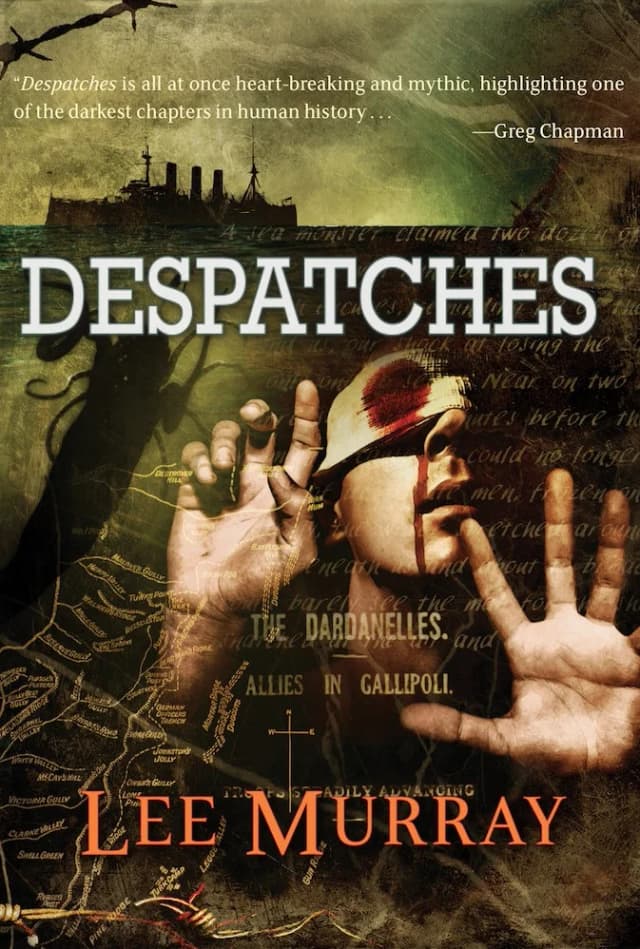Review: Despatches
Reviewed by Angelique Kasmara
Lee Murray’s latest work, historical horror novella Despatches, takes place during one of WWI’s most disastrous campaigns. In 1915, news correspondent Cassius Smythe is sent to the Dardanelles to report on the Allied campaign at Gallipoli, but quickly finds that the articles he’s submitting aren’t suitable for the War Office’s propaganda machine.
His frank coverage of sickening casualties is perceived as bad for morale and he is asked to rewrite, this time ‘representing the Empire in more gracious terms.’ A disheartened Cassius then turns his attention to recording the personal testimonies of the soldiers, chaplains, snipers and stretcher bearers in his midst, but he is thrown once again when he is told of encounters of the fantastical kind, in the form of creatures that emerge from the depths of the sea and the bowels of the earth.
In less capable hands, adding Lovecraftian-type monsters to the grim horror of war might have turned the story into an unpalatable mess but Murray plays these disparate elements beautifully against each other. The visceral and heart-wrenching elements of both serve to lift the narrative into the realms of a classical epic tale, echoing Herman Melville’s Moby Dick in its imagery, from which emerges a powerful work which left this reader devastated.
Murray knows the genre well - foreboding pervades each page and descriptions of carnage are observed with an unwavering eye. She is also meticulous with historical details, from the tiny - ‘With no coffins to be had, the friends had sewn him into his greatcoat, his collar brought together at the edges in a zigzag’ - to the broader sweep of life in the trenches.
Although Despatches is primarily Cassius’s story, the lens widens at times to include other perspectives and layers to the narrative, such as that of his sister Harriet waiting for news of him back in New Zealand, and a prisoner of war, Phillipe, left traumatised and filled with survivor’s guilt. Moments of connection and small pleasures shine a welcome light onto the sombre palette. During a truce, Cassius converses with a Turkish soldier, learning of the casualties on their side, and he lends a hand with a haircut.
The constriction to Cassius’s reportage proves central to plot and theme. Letters, diary journals and news clippings form the structure and tug at the ever-present tension between what we hold inside our hearts, and what we choose to reveal. Keeping some things secret isn’t so much a choice in this world as an act of preservation, and often, not even for ourselves but for our loved ones. There’s a moment when a dying soldier asks, ‘Mister. Please. I’ve changed my mind. Don’t tell my mother that. Tell her anything but that. Tell her I died quick. That I was laughing with my mates—a silly joke—and I caught a bullet off the hills. Let her think they buried me under a tree, and the chaplain read a verse or two, while my friends stood all around me.’
A central tragedy - that of someone doomed to remain forever severed from his authentic self because of the societal judgements of the times - unfolds in a way which is particularly melancholic. Just enough is revealed to give us a glimpse into the heaviness he carries with him and the impact on those waiting for his return.
Although Murray is one of our most prolific and internationally celebrated writers, as the recipient of multiple Bram Stoker Awards and the sole Aotearoa New Zealand recipient of the Shirley Jackson Award, it’s taken her a long time to be recognised in her own country. Here’s hoping that Despatches gains her a few more local followers.
Reviewed by Angelique Kasmara
